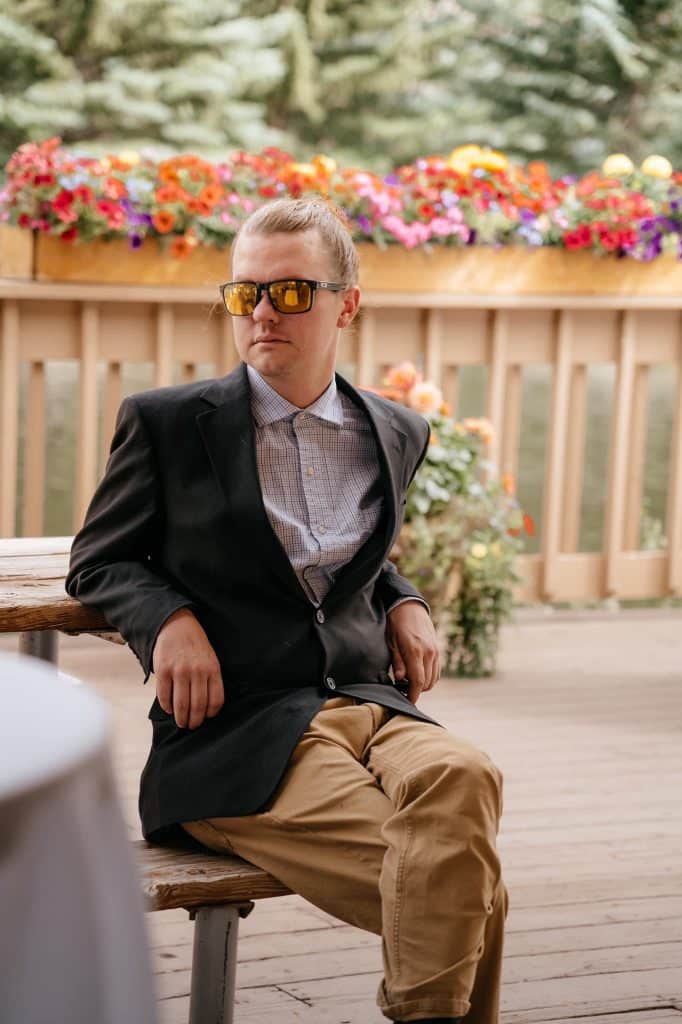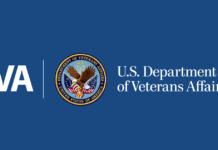Kelley Smith/Courtesy Photo
Charismatic, compassionate, giving, selfless, adventurous and funny were just some of the adjectives used to describe Todd Johnson at his recent celebration of life.
“Todd had a heart of gold,” wrote his step-sister Hallie in her speech at the ceremony. “He knew how to slow down, live in the moment, and treat others well.”
Originally from Illinois, Johnson moved to Colorado to attend Colorado State University in 2009. After graduating with a degree in hospitality, Johnson moved to Eagle County in 2015 where he got to live out his passions of snowboarding, wakeboarding, fly-fishing, mountain biking, skateboarding, disc golf, cooking and photography.
During the years he spent in Eagle County, Johnson worked at several Vail area hotels including the Antlers, Highline, Christie Lodge and, most recently, as a front desk agent at The Sebastian.
“He was a very charismatic person, which is why I think he succeeded so well in hospitality,” said Kelley Smith, Johnson’s mother. “He always just went out of his way for others, to make them feel comfortable and feel at home, whether it be friends or guests.”

Support Local Journalism
On Oct. 31, 2021, Johnson died at his home in EagleVail due to health complications from his struggles with alcoholism for many years.
In the wake of his death, Kelley Smith and her husband, Jim Smith, the stepfather to Johnson, have started a fundraiser in his honor to benefit Eagle Valley Behavioral Health.
“I do believe in behavioral health, I think it’s really important and this was just a way to do it for Todd and create a bright spot in this whole tragedy,” Kelley Smith said.
“While we couldn’t help Todd, we’re hoping that this could help future people who have maybe similar abuse issues,” Jim Smith added.
As of Wednesday, Dec. 21, the fundraiser has received nearly 100 donations totaling just over $19,401, which will go toward Eagle Valley Behavioral Health’s efforts to build and support a multi-faceted approach to addiction and substance abuse.
“If this can be Todd’s lasting legacy, I think that’s great. To know that his death was able to benefit someone else is important,” Kelley Smith said, adding that the community support has been phenomenal. “That was so prevalent at the celebration of life. We had a lot of our friends here in the Vail Valley who did not even know Todd, but they came to support us. And it has been overwhelming to us to see the level of support from this valley and the people in it.”
Breaking the stigma
The impacts of this fundraiser extend far beyond the money raised — and even what those funds will ultimately support — according to Dan Pennington, president of the Vail Health Foundation.
“Sure, the money is important because it allows us to do the work, but I think being vulnerable, sharing a message and getting people aware of what happened to someone in our community and learning about opportunities to maybe step in and help others who are maybe suffering from the same thing is probably a greater impact than even the money that would help support some of the services and things that are being done,” Pennington said.
While the Smiths certainly hope that the money raised will be earmarked in Johnson’s memory will go toward supporting individuals in the community — be it through financial assistance for individuals seeking help or to support more therapists and services — this greater impact of eliminating stigmas is certainly top of mind.
“Sometimes people take that approach where they sweep it under the table,” Jim Smith said.
Kelley Smith added that, “We didn’t want to do that; we wanted to do something good out of it.”
Already, in speaking about their son’s struggles with alcohol, Kelley and Jim Smith have begun to see the impact of their vulnerability and openness.
“I’d say one out of three or four people have a similar story — whether it be alcohol, substance, or mental illness — with someone very, very close to them (like a family member) that had these issues,” Kelley Smith said. “While it’s been so hard to be open and transparent about this whole thing, I’ve received accolades from people I don’t even know, who have emailed me and said, just thank you for your honesty and your courage in highlighting this problem.”
Jim Smith added that many of the people that have come forward to share similar stories are people they have known for a long time, but that had never opened up about their experiences until the Smiths were open with theirs.
“They’ve felt compelled to talk about it since we were talking about it,” he added.
While not unique to the valley, this silence and stigma around alcoholism, substance use and mental health can be more prominent in resort communities.
“No stigma should be attached to someone reaching out for help,” Kelley Smith said. “This is a disease too, but it’s too easily swept under the rug or denied that they have a problem.”
While conversations around mental and behavioral health have become more prominent in Eagle County in recent years, alcoholism remains a bit of a blind spot.
“Alcohol is something that is so centralized and normalized, I think there remains this interesting interplay between stigmatization and normalization and a fundraiser like this helps bridge and address both of those things at the same time,” said Dr. Paige Baker-Braxton, a licensed clinical psychologist and the director of outpatient behavioral health at Eagle Valley Behavioral Health. “Yes, alcohol use is something normalized in our community, and also it is something that many people struggle with, and here’s an opportunity to get help, here’s an opportunity to have conversations about problematic alcohol use with your friends and your family.”
Baker-Braxton added that there are many reasons why alcohol use is much higher in our community and other resort communities like it. This includes not only the leisure and recreation-centered lifestyle accompanied by having a tourist economy where parties are part of the culture, but also the higher levels of isolation and high costs of living, she said.
“Alcohol is something that people use to celebrate and embrace joy but it’s also something that folks use to cope,” Baker-Braxton said. “Every day there is plenty to do and plenty to drink and for those of those that live here, not every day is a party, yet we have access and are exposed to that culture, almost year-round at this point.”
Plus, this time of year, around the holidays, can be even more challenging for individuals.
“The holidays can be a traumatic time for people. It can bring up more feelings of isolation, separation from family; we have a lot of folks that are here that are visiting and part of our tourist economy that are separated from their family and friends; financial concerns also increase around this time of year,” said Kala Bettis, an integrated Behavioral Health Specialist, licensed counselor and licensed addiction counselor at Eagle Valley Behavioral Health.
“People frequently turn to alcohol as a coping skill, and I think one thing that we have to be especially mindful of in our community, like many rural and mountain communities, is there’s a high correlation between substance use and behavioral health but more importantly alcohol use and suicide; and we see suicidal ideation and attempts increase around the holidays when it’s coinciding specifically with increased alcohol use.”
In speaking about their experiences and about Todd, the Smiths hope to not only break down the stigmas but also hopefully lead people to the help and support that do exist in the community.
“Really the crux of this thing is, there is help available, but we’d really urge other people that need the help to accept it and use it. That would be the biggest thing,” Jim Smith said.
“I’d be happy to talk to other people who have been affected by this in any way because sometimes it helps to share stories and experiences,” Kelley Smith added. “I would be happy to be there for somebody else that needs it, because Lord knows you need it when you go through something like this.”
Substance use challenges
The Smiths began noticing signs of Johnson struggling with alcoholism when he first moved to the valley in 2015. Soon after, he began to experience health complications as a result of this use. Throughout, Johnson denied his mother and stepfather’s attempts to support recovery.
“He was told many times, by doctors, by ER, by us, by friends that he had to stop drinking. We were right there to provide help — financial as well as emotional — but he just denied he ever had a problem and just refused help from everybody,” Kelley Smith said.
Jim Smith added that Johnson wasn’t a social drinker, which led him to be able to hide his challenges when in public or at work. At Johnson’s celebration of life, Jim Smith said that over 100 people attended, many of who didn’t know of his struggles.
“Everybody that knew Todd — he was this the kindest, nicest person — a lot of people didn’t know that he had this struggle at all because he kept it private. They were shocked to hear that such an outstanding young man had these terrible challenges and health issues going,” he said. “I’m sure there are probably many, many other cases in Eagle County.”
All of which speaks to the challenges of alcohol and substance use, as well as mental and behavioral health.
“It is a disease, alcoholism,” Jim Smith said. “It’s not something to be embarrassed about, it’s something that people need to deal with, just like if they had cancer or some other disease.”
Baker-Braxton said that one of the first things that the Vail Health, Eagle Valley Behavioral Health and Colorado Mountain Medical providers look for in identifying such challenges is problems in relationships related to drinking.
“Often folks who have problematic drinking are in denial or avoidance of what’s really happening. But the thing they can identify is struggling in their relationships or difficulty at work or challenges at getting up and going to school,” Baker-Braxton said. “We often look at some of the psychological impacts of alcohol use as well, because those things are incredibly tangible to the people that are struggling as well.”
Bettis added that the signs are different for every patient.
“What we see, especially on the medical side with the integrated care, we have patients coming in that believe that their use is average, it can be normal but then as we get in that conversation with them about how it can affect their other functioning during the day — lethargy, lack of sleep, irritability — and when they really discuss out loud the number of drinks they can have per day, per week, there’s this realization, this understanding that it can be a bigger component of their life than they had previously realized, due to the cultural acceptance,” Bettis said.
For Vail Health and its subsidiaries, the relationships between all aspects of health are critical to supporting the entire well-being of its patients.
“Rather than having substance abuse programming pulled out into individual tracks, it’s deeply embedded in all of the services that we provide,” Baker-Braxton said. “We know, in our community, the tight link of the co-morbidity between substance abuse and other behavioral health issues like anxiety, depression, PTSD, bipolar disorder.”
She added that this approach includes having a “huge continuum” of services including peer support services, case management services (which support individuals struggling with alcohol as well as other social health determinants like housing, transportation and food instability), its integrated behavioral health program (which helps connect patients to other providers and services in the network) as well as outpatient behavioral health services.
“We have a really robust service offering, in-house, and have wonderful relationships with our community partners, so there’s truly wraparound care at all levels for folks who are experiencing substance use issues and folks who are at different points in that journey — some wanting to get abstinent and get sober, and others just wanting some additional support,” Baker-Braxton said.
Resources and support
The resources and support available for those struggling with behavioral health as well as alcohol and substance abuse also extend beyond Vail Health and its subsidiaries. This includes many of its community partnerships like SpeakUp ReachOut, Your Hope Center, Eagle County Paramedics Services, Vail Mental Wellness as well as Alcoholics Anonymous and Al-Anon.
While Your Hope Center offers 24/7 crisis support as well as in-school support, it also has a community stabilization program, which Bettis said can specifically help with substance and alcohol use by providing “intent care over a period of time.”
Additionally, the community paramedics with Eagle County Paramedics offer free ambulatory detox services for Eagle County community members at their homes.
Additionally, Vail Health and many of its partners offer peer support programs, which include Sober Sundays — done in partnership with Seagull’s Cycles to provide sober activities — as well as Vail Mind Wellness which provides peer support for the service industry workforce through art, outdoor activities and speaker series.
“It’s not only providing sober activities, but it’s providing a different sense of community and collaboration to guide this valley into actives that don’t necessarily have to revolve around alcohol and substance,” Bettis said. “All of our peers that are involved in substance and alcohol use provide that peer support to another individual based on their own experience with that same thing. They’re meeting people where they are at, day by day, in order to support them through what they can understand through first-hand experience.”
However, these supports can also be provided by individuals in the community for their friends, peers and family members on a daily basis. Alcohol and substance use challenges can have a “ripple effect” on those around them, Baker-Braxton said.
“It affects not only the individual — their ability to go to work, their ability to maintain strong relationships, but it affects those in their ecosystem,” she said. “It is a community problem that demands a community-wide intervention.”
This includes normalizing conversations around problematic alcohol use, having conversations with the people closest to you, being mindful about having non-alcoholic options at events and celebrations and coming together for different points of intervention.
“We live in the most beautiful place in the world, there are plenty of things for us to be able to do outside, to celebrate and come together that aren’t embedded within this drinking culture,” Baker-Braxton said. “I think it’s small simple changes that we can do in our own lives and on a larger scale, for those of us in a position of power, can alter the way that we as an institution are thinking about celebration or end of year parties.”
The Smiths hope that their fundraiser will continue to support and expand these services and many others that help individuals on their paths to recovery. The fundraiser is part of the Vail Health Foundation’s greater “It Takes a Valley” campaign, which aims to raise $100 million to support Vail Health’s $60 million commitment to launch Eagle Valley Behavioral Health and additional behavioral health infrastructure. To date, this campaign has raised $61.7 million toward its $100 million goal.
“This is a community-wide effort. Working with our provider partners as well as our program partners — like SpeakUp Reach Out and Your Hope Center and those others — has really been the key to our overall success. We’re not trying to do everything; we’re trying to find the best people to do the various services. Maybe they’re already here, maybe we need to start them, and we build upon that,” Pennington said. “We then took the same approach with our fundraising.”
And with the fundraiser in Johnson’s honor, this is just one more step toward that.
“To lose someone so young in this way is really heartbreaking and it speaks to the importance of really having this easy access to behavioral health resources in our community and we thank them for this effort and this fundraiser,” Pennington said. “It’s been a really phenomenal effort on their part.”
To make a donation in Todd Johnson’s memory, visit Donate.VailHealthFoundation.org/ToddDJohnson.






























